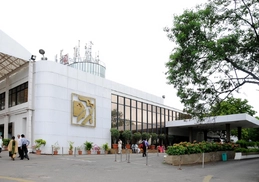
+91 8095511877

+91 8095511877
Kidney stones are hard deposits of minerals like calcium or any other waste products such as uric acid. These stones form inside your kidneys. They start small but can grow bigger as more minerals and waste products stick to them. Kidney stones can affect any part of your urinary tract. It can be from your kidneys to your bladder.
Some kidney stones will pass without any treatment. Other stones will grow bigger and stick to your urinary tract. You will then need surgery to remove these.
Kidney stones occur when the urine in your body becomes concentrated. Because of this, minerals will crystalize and stick together.
There is no definite cause of kidney stones. They occur when your urine contains crystalline substances. These could be calcium, uric acid, and oxalate. These substances will stick together and form kidney stones.
If you know the type of kidney stone you have, it will help the doctors identify the cause and help prevent it better. There are four types of kidney stones. These include:
Certain factors that can increase your risk of kidney stones include:
Your doctor will run certain diagnostic tests and procedures to confirm if you have kidney stones or not. These tests will include:
The treatment for kidney stones will depend on the size of the stone, the type of stone, and its cause.
A lot of the kidney stones don’t require treatment. You can pass small stones by:
It is a minimally invasive surgery to remove large kidney stones. It is for cases where
During this procedure, you will be under general anesthesia. Your doctor will make a small incision in your back to get access to the kidney stones. They will pass a thin tube into your ureter. This tube has special tools that can break the kidney stone into pieces. These broken pieces will then pass in your urine. Your doctor will also use a small tube (stent) in the ureter, which will help relieve the pain. It will also prevent any swelling.
You will need to be in the hospital for 2-3 days after the procedure. You should avoid heavy lifting, hard manual work for 3-4 weeks after the procedure.
This treatment involves using shock waves to remove kidney stones. Sound waves with strong vibrations break the kidney stones. It then goes out of your body when you urinate. This process takes up to 45-60 minutes. You will be under sedation during the procedure. ESWL can cause blood in the urine, bleeding around the kidney or bruising in the back or abdomen.
It is the latest form of treatment for kidney stones. This procedure uses lasers to remove stones in the kidneys, bladder, ureters or in the urethra.
It is a safe procedure to remove stones in those people with a single kidney.
There are some steps that you can take to prevent the occurence of kidney stones.


This article has been reviewed for medical correctness and relevance by
Dr Deepak Bolbandi
Dr.Deepak Bolbandi is a Senior Consultant Urologist and Transplant Surgeon working with Apollo Hospitals Group. He is rated among the best in the country. He is the First Urologist to Enter Guinness Book of World Records when he removed maximum number of stones from a Single Kidney. Dr. Bolbandi has performed more than 5000 kidney stone surgeries and more than 2000 prostrate surgeries. He is an expert at Laparoscopic Nephrectomy, Laparoscopic Pyeloplasty, and Surgery for Retrocaval Ureter. He also does Laparoscopic procedures for stone Disease and complex Adrenal surgeries.

Apollo Health City

Apollo Indraprastha

Aster CMI

Columbia Asia

Fortis Bangalore

Fortis Kolkota
Frequently Asked Questions
What are the main signs of kidney stone?
Can kidney stones be cured permanently?
Can kidney stones pass through urine normally?
How much does kidney stone surgery cost in India?